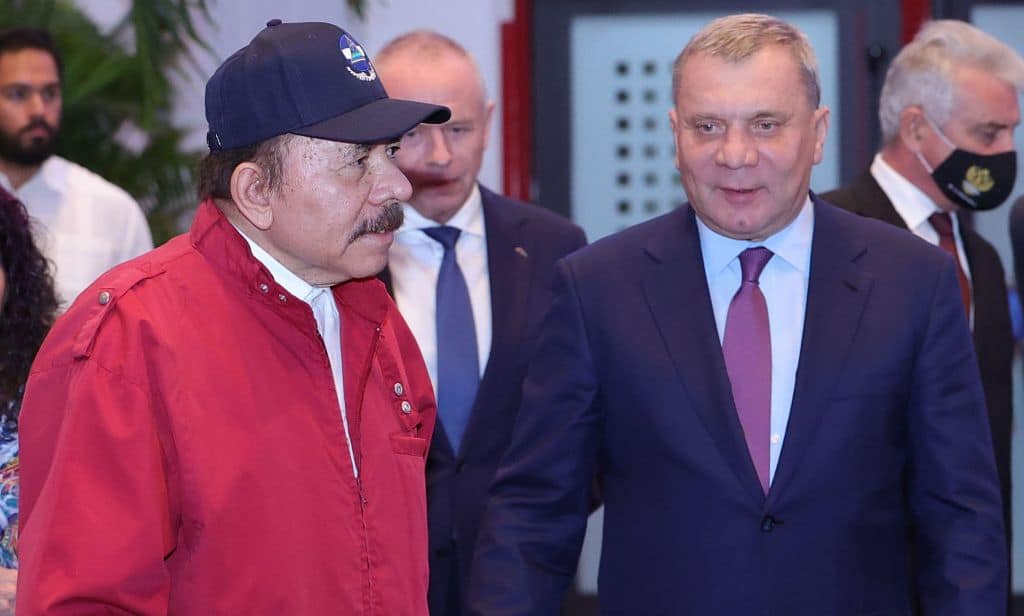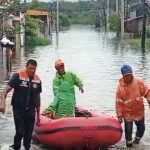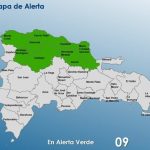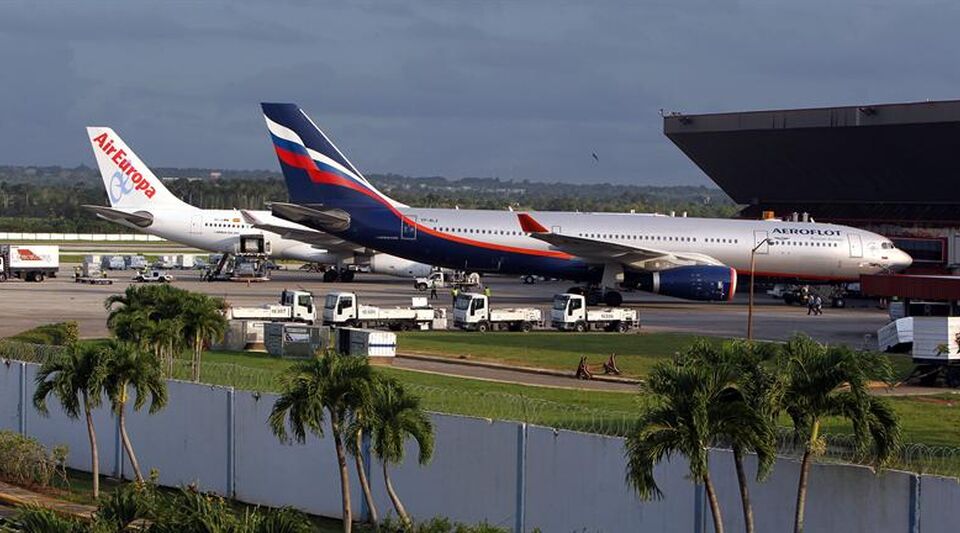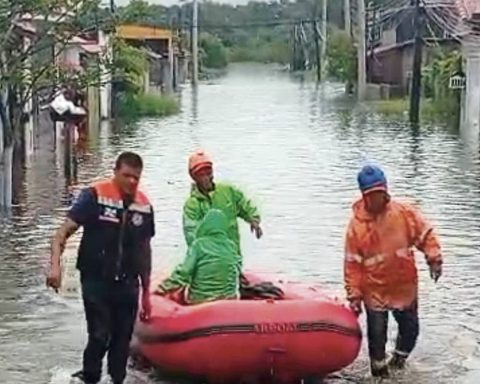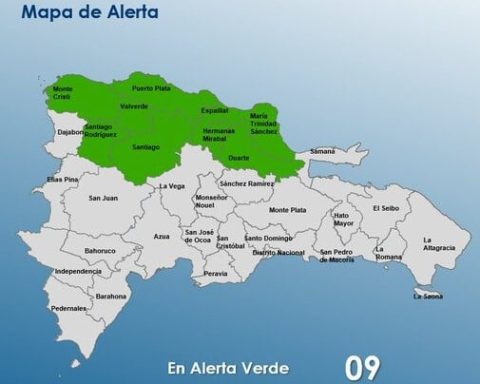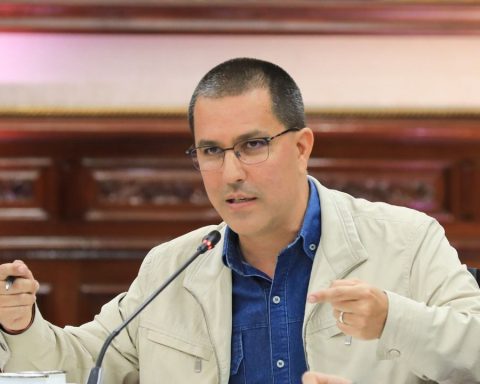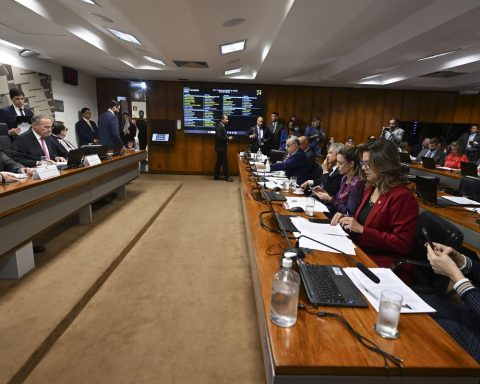Eight days after the presidential swearing-in, attended by only three leaders from Latin America and a special envoy from Mainland China, a phone call from Vladimir Putin on January 18, 2022, to acknowledge the disputed re-election of the Sandinista dictator, said the alliance between two autocrats and activated the machine of promises of Ortega propaganda.
With considerable enthusiasm, Vice President Rosario Murillo, in her midday speech on January 18, 2022, praised the telephone dialogue as a broad conversation between “both leaders, in which we had the honor of participating” and in which they discussed the efforts that their countries share “for peace in the world”, a strengthening of relations that occurs when more than 40 countries did not know the results of the votes last November in Nicaragua.
The Russian expressed a new congratulations to the Nicaraguan presidential couple because on November 10 he sent them a letter with his ambassador in Managua, Alexander Khokholikov, in which he extolled the “overwhelming victory” that demonstrates the “political weight” of Ortega, ignoring criticism for human rights abuses.
On the afternoon of February 17, Ortega also received Russian Deputy Prime Minister Yuri Borísov, who promised on Putin’s behalf to multiply the trade relationship between the two countries, while the Nicaraguan publicly supported his ally, which is trying to annex Ukraine by force. . The version of the Sandinista ruler is that the Russian struggle is for “peace”.
Since before the Russian autocrat improvised a visit to Nicaragua in 2014, during a tour in Latin America, Moscow has taken Managua as one of its “main partners” in the region and recently announced that it would increase military cooperation with the Ortega regime and its peers from Venezuela and Cuba respectively, led by Nicolás Maduro and Miguel Díaz-Canel.
On February 5, the Russian ambassador in Managua, Alexandr Jojolikov, told Interfax agency that, for the moment, they are not talking about the deployment of military infrastructures in Nicaragua.
“Be that as it may, if necessary, both parties will adopt additional decisions that will respond to their national interests. It is their sovereign right”, defended the diplomat about a binational relationship that he described as “strategic” and whose details are unknown to the general public.
Jojolikov made reference to the fact that there are a dozen agreements between military structures and explained that the technical cooperation is aimed at guaranteeing the defense capabilities of the Nicaraguan Army, although he clarified that it is not directed “against third countries.”
Since 2008, Putin has backed Ortega politically with decisions that have favored the Sandinista ruler. According to information from the EFE agency, the Russians have provided the regime with access to 1,100 buses to renew public transport, donating 32,266 tons of wheat in 2021, with which the dictator has proselytized. “We have the record (for the purchase of buses) thanks to that principle of sovereignty and solidarity that the power of the Russian Federation practices,” Ortega said in October 2021.
Putin’s decisions —reciprocated by Ortega with the recognition of Russian separatist regions— have strengthened ties.
In July 2021, while the international community criticized Ortega for imprisoning the main opposition leaders before the votes, the Kremlin received two sons of the presidential family, Rafael and Laureano Ortega Murillo, whom the United States sanctioned for having an important role in the family business scheme: the first as an investment promoter and the other as the local administrator of the opaque cooperation of Venezuela.
The secrecy of the relationship with the Army
Secrecy is a characteristic present in the military issue, although commercial agreements, investments and cooperation in telecommunications are publicly known. In the electronic pages of the Nicaraguan Army and the Russian Ministry of Defense, the details about the military agreements are non-existent and are summarized as photographs between the officials, without further information.
An expert on military issues commented, anonymously to avoid reprisals from the Nicaraguan authorities, that “the information from the Ortega government is minimal, what is known about the delivery of weapons we have learned because the Russian Federation announces it through the official media like Sputnik, but at least they announce it, here they say nothing. In that sense, Russia is more transparent than Nicaragua, although what I am telling you seems exaggerated.”
The installation of a ground station that allows connection with 24 Russian satellites from a place near Laguna de Nejapa in Managua and a police training center against drug trafficking, where Central American officers are educated, points to the consolidation of the Russian presence and its projection in the region.
There are also no precise details on the global aid of Russian cooperation to the Air Force, or any of the other national military directorates. One of the greatest examples of opacity occurred with the shipment of Russian tanks to Nicaragua.
General Julio César Avilés, head of the Army, explained in August 2016 that the acquisition of 50 Russian T-72 tanks will not mean a debt of 80 million dollars for Nicaragua, but the mechanism for acquiring them was not clear, while one of the devices was publicly exhibited in Plaza de La Fe, in Managua, on the occasion of the institution’s 37th anniversary.
According to the Nicaraguan Central Bank cooperation report, Russia has donated 149.8 million dollars to the public sector between 2007 and 2015. The National Assembly recently approved the subscription of a loan of 16.8 million euros for a term of seven years with two years of grace and also secrecy surrounds this agreement. The most disturbing edge of the relationship between the Ortega regime and Putin is a new weapon to pursue opponentsexpressed in an agreement signed with Russia, which, according to digital experts, opens the door to the persecution of critics of power in Nicaragua.
